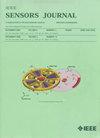基于改进多重SOGI-FLL的AMB转子系统谐波电流抑制
IF 4.3
2区 综合性期刊
Q1 ENGINEERING, ELECTRICAL & ELECTRONIC
引用次数: 0
摘要
在主动磁轴承(AMB)系统中,由质量不平衡和传感器跳动引起的谐波电流导致系统产生谐波振动。传统的谐波电流抑制方法高度依赖于精确的转速信息,这限制了它们在没有转速传感器的情况下的应用。针对这一问题,本文首先分析了谐波的主要来源,然后提出了一种改进的多重二阶广义积分锁频环(IMSOGI-FLL)算法。该算法利用扰动信号中基元的频率实现旋转频率的自适应估计,有效地抑制了质量不平衡和传感器跳动产生的谐波电流。此外,为了保证系统在工作范围内的稳定性,本文设计了一种简单的无参数切换的相位补偿器,可以提高系统在低频段的稳定范围。实验结果表明,该算法不仅能准确估计出旋转频率,还能显著消除质量不平衡和传感器跳动引起的谐波电流,为无速度传感器情况下谐波电流抑制提供了有效的解决方案。本文章由计算机程序翻译,如有差异,请以英文原文为准。
Harmonic Current Suppression of AMB Rotor System Based on Improved Multiple SOGI-FLL
In active magnetic bearing (AMB) systems, harmonic currents induced by mass unbalance and sensor runout cause the system to generate harmonic vibrations. Conventional harmonic current suppression methods depend highly on accurate rotational speed information, which limits their application in scenarios without rotational speed sensors. To address this problem, this article first analyses the main sources of harmonic vibration and then proposes an improved multiple second-order generalized integral frequency-locked loop (IMSOGI-FLL) algorithm. The algorithm achieves adaptive estimation of the rotational frequency by using the frequency of the fundamental component in the disturbance signal and effectively suppresses the harmonic currents generated by the mass unbalance and sensor beating. In addition, in order to ensure the stability of the system in the operating range, this article designs a simple phase compensator without parameter switching, which can improve the stability range of the system in the low-frequency band. The experimental results show that the proposed algorithm can not only accurately estimate the rotational frequency but also significantly eliminate the harmonic currents caused by mass unbalance and sensor runout, which provides an effective solution for harmonic current suppression in the case of no speed sensor.
求助全文
通过发布文献求助,成功后即可免费获取论文全文。
去求助
来源期刊

IEEE Sensors Journal
工程技术-工程:电子与电气
CiteScore
7.70
自引率
14.00%
发文量
2058
审稿时长
5.2 months
期刊介绍:
The fields of interest of the IEEE Sensors Journal are the theory, design , fabrication, manufacturing and applications of devices for sensing and transducing physical, chemical and biological phenomena, with emphasis on the electronics and physics aspect of sensors and integrated sensors-actuators. IEEE Sensors Journal deals with the following:
-Sensor Phenomenology, Modelling, and Evaluation
-Sensor Materials, Processing, and Fabrication
-Chemical and Gas Sensors
-Microfluidics and Biosensors
-Optical Sensors
-Physical Sensors: Temperature, Mechanical, Magnetic, and others
-Acoustic and Ultrasonic Sensors
-Sensor Packaging
-Sensor Networks
-Sensor Applications
-Sensor Systems: Signals, Processing, and Interfaces
-Actuators and Sensor Power Systems
-Sensor Signal Processing for high precision and stability (amplification, filtering, linearization, modulation/demodulation) and under harsh conditions (EMC, radiation, humidity, temperature); energy consumption/harvesting
-Sensor Data Processing (soft computing with sensor data, e.g., pattern recognition, machine learning, evolutionary computation; sensor data fusion, processing of wave e.g., electromagnetic and acoustic; and non-wave, e.g., chemical, gravity, particle, thermal, radiative and non-radiative sensor data, detection, estimation and classification based on sensor data)
-Sensors in Industrial Practice
 求助内容:
求助内容: 应助结果提醒方式:
应助结果提醒方式:


